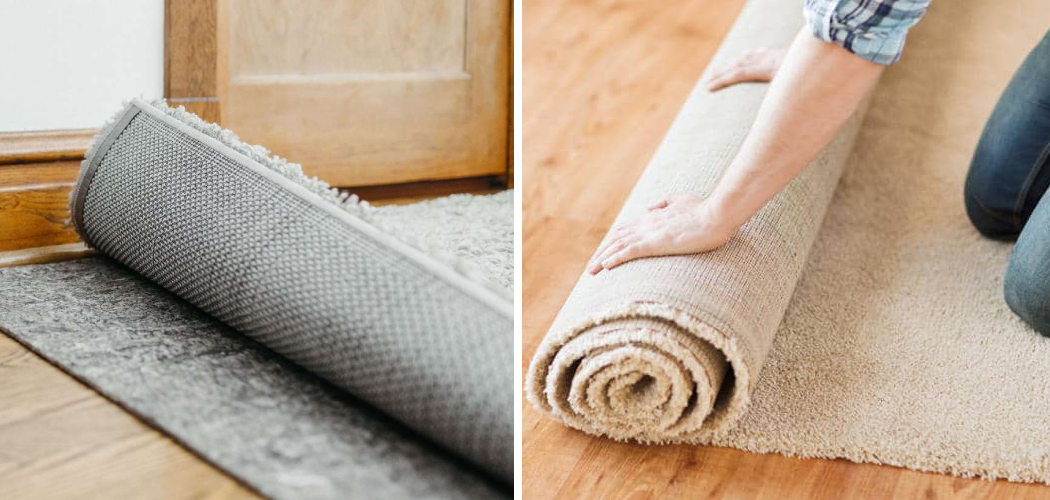If you live in an apartment, one of the biggest challenges can be dealing with noise from your neighbors or from outside. This is especially true when it comes to soundproofing the floors of your unit. Whether it’s loud footsteps, music, or general everyday noises, having a quiet living space is essential for a peaceful and comfortable home.
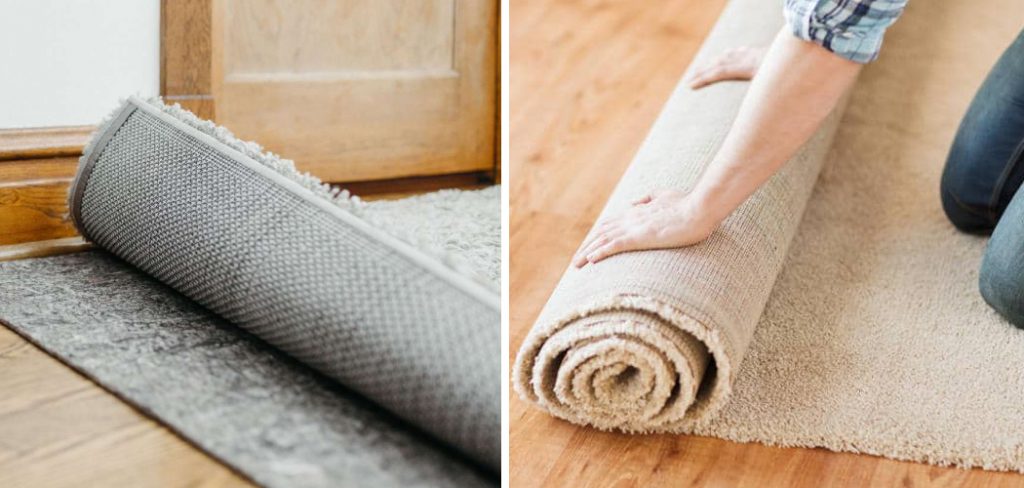
Many people assume that soundproofing an apartment floor is expensive and time-consuming, but it doesn’t have to be. There are simple and cost-effective solutions that you can implement on your own to reduce noise levels in your apartment. In this guide, we will discuss some of the most effective ways how to soundproof apartment floor and create a more soundproof living space.
Why It is Important to Soundproof Apartment Floor?
When you live in an apartment, it is important to understand the importance of soundproofing your floor. Sound travels easily through floors, especially in older buildings with thinner walls and less insulation. This means that any noise from your neighbors or outside can easily enter your living space and disrupt your daily activities.
It can also cause disturbance and annoyance, especially if you have young children or need a quiet environment for work or relaxation. Additionally, if you have hardwood floors, soundproofing can also help reduce the echo and reverberation in your unit, making it more pleasant to live in.
10 Best Ways on How to Soundproof Apartment Floor
1. Use Carpet or Rugs:
One of the simplest and most cost-effective ways to soundproof your apartment floor is by using carpets or rugs. These soft materials can help absorb noise and reduce its transmission between floors. You can choose from a variety of thicknesses and textures depending on your budget and noise level.
Placing them in high-traffic areas such as living rooms, bedrooms, and hallways can significantly minimize noise from foot traffic and other activities.
2. Install Soundproof Underlayment:
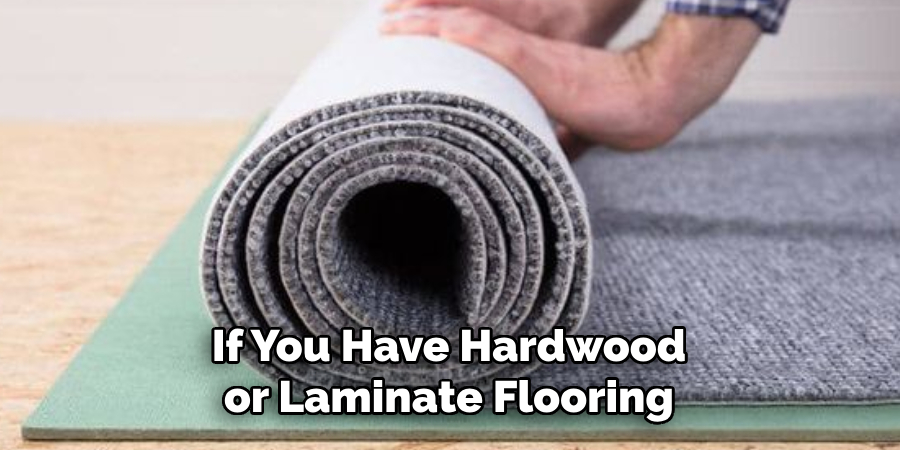
If you have hardwood or laminate flooring, installing a soundproof underlayment is essential for reducing noise levels. This material acts as a barrier between your floor and the subfloor, preventing sound waves from traveling through.
There are different types of soundproof underlayment available in the market, such as foam and rubber, each with its level of effectiveness. Make sure to choose one that is specifically designed for impact noise reduction.
3. Seal Gaps and Cracks:
One of the major sources of noise transmission between floors is small gaps and cracks in the floor. These can be found around baseboards, door frames, and vents. By sealing these gaps with caulk or weatherstripping, you can significantly reduce noise levels in your apartment. It is an easy and inexpensive solution that can make a big difference in soundproofing your floor. This can also help reduce drafts and improve energy efficiency in your unit.
4. Use Soundproof Mats:
Soundproof mats are another effective solution for reducing noise transmission between floors. They are thicker than regular rugs and have sound-absorbing properties that can minimize impact noise from footsteps, furniture, and other activities.
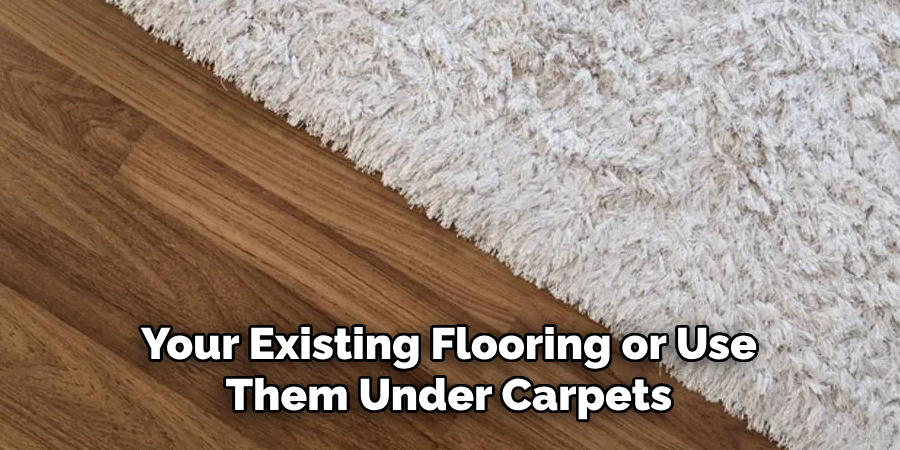
You can place them directly on top of your existing flooring or use them under carpets and rugs for added soundproofing. Using soundproof mats can be particularly beneficial for those living in apartments with thin floors or low-quality insulation.
5. Invest in Furniture Pads:
If you live in an apartment with hardwood floors, investing in furniture pads is a must. These small and inexpensive pads can be placed under the legs of your furniture to prevent them from scratching the floor and creating noise when moved around.
They also act as a buffer between your furniture and the floor, reducing impact noise. Make sure to choose pads that are specifically designed for soundproofing and have a high density for better absorption.
6. Use Door Sweeps:
Another common source of noise transmission is through doors. Installing door sweeps can help minimize this by sealing the gap at the bottom of the door, preventing sound waves from entering or exiting your apartment. Door sweeps also help reduce drafts, improve insulation, and keep out dust and insects. They are easy to install and can make a noticeable difference in soundproofing your apartment floor.
7. Hang Soundproof Curtains:
In addition to carpets and rugs, hanging soundproof curtains can also help absorb noise and reduce its transmission between floors. These curtains are made with dense materials that can block out outside noise and reduce echo in your unit.
They also act as an extra layer of insulation, keeping your apartment cooler in the summer and warmer in the winter. You can choose from a variety of colors and designs to match your home decor.
8. Use Acoustic Panels:
For those who want a more permanent and professional solution, acoustic panels can be installed on the walls or ceiling to reduce noise levels. These panels are specifically designed to absorb sound waves and prevent them from bouncing off hard surfaces, such as walls and ceilings.
They are available in different sizes, shapes, and designs, making it easy to incorporate them into your home decor. While they may be more expensive than other solutions, they can provide long-term and effective soundproofing for your apartment.
9. Install Soundproof Windows:
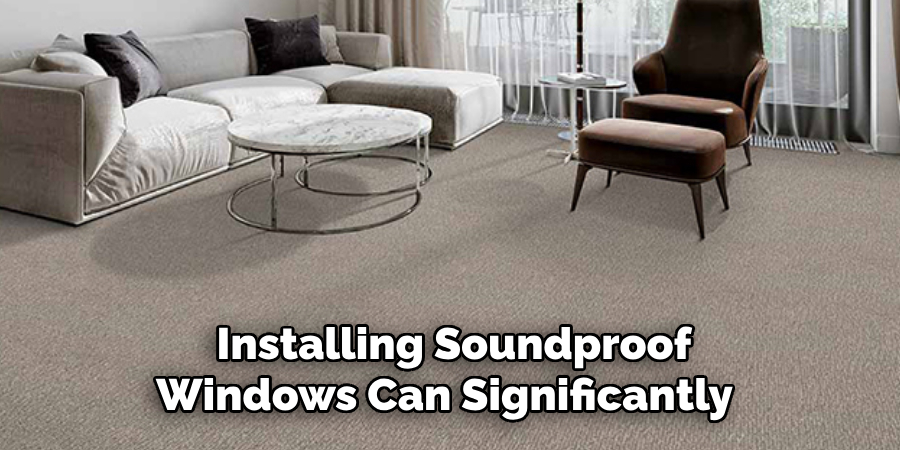
If you live in a noisy environment, installing soundproof windows can significantly reduce outside noise levels in your apartment. These windows are made with multiple layers of glass and air pockets that act as a barrier against sound waves.
They can also help reduce energy costs and improve insulation in your unit. While they may be more expensive than other solutions, they can provide long-term benefits for soundproofing and overall comfort in your apartment.
10. Talk to Your Landlord:
Lastly, if you are struggling with noise issues in your apartment, it is always a good idea to talk to your landlord or building manager. They may have suggestions or be able to make changes to the building that can improve soundproofing for all tenants. It is also important to remember that noise is a common issue in apartment living, and being respectful of your neighbors can go a long way in creating a peaceful and harmonious community.
Following these tips can help you soundproof your apartment floor and create a more peaceful and comfortable living environment. By using a combination of solutions, you can effectively reduce noise levels in your unit and enjoy the privacy and tranquility that every tenant deserves.
Remember to always choose materials that are specifically designed for soundproofing and follow proper installation instructions for optimal results. With a little effort and investment, you can make a big difference in soundproofing your apartment floor. Keep these tips in mind and enjoy a quiet and peaceful home. Happy soundproofing!
Additional Tips and Tricks to Soundproof Apartment Floor
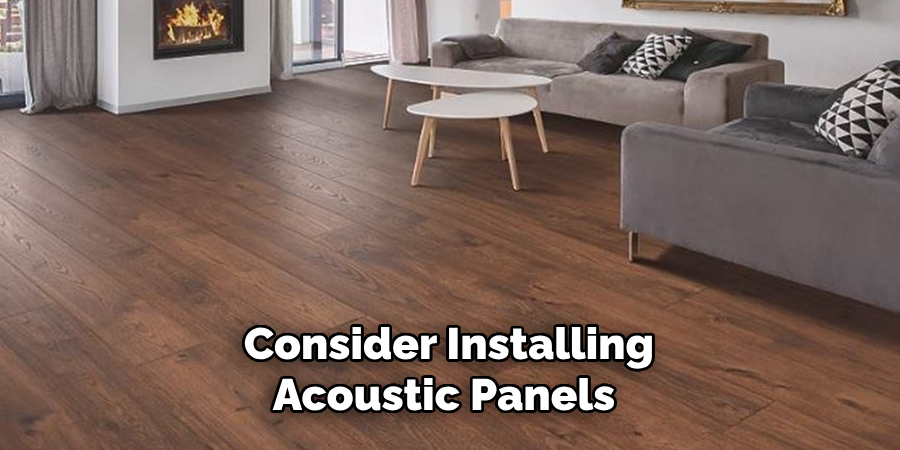
1. If you have additional funds, consider installing acoustic panels or soundproofing underlayment beneath your apartment’s flooring to further reduce noise transmission. These materials are specifically designed to absorb sound and minimize vibrations.
2. Another tip is to strategically place furniture, area rugs, and curtains or drapes in your apartment to help dampen noise. Soft surfaces can help absorb sound waves and reduce overall noise levels in your space.
3. You may also want to consider investing in a white noise machine or sleep-friendly sound app to drown out any remaining noise that may still be heard in your apartment. These can be especially helpful for light sleepers or those living in particularly noisy areas.
4. Don’t forget to seal any gaps or cracks around doors, windows, and baseboards with weather stripping or caulk to prevent noise from leaking into your apartment.
5. Additionally, consider speaking with your neighbors about ways to minimize noise levels in common areas such as hallways and shared walls. Open communication can go a long way in creating a more peaceful living environment for everyone.
6. If you have control over the flooring in your apartment, opt for thick carpeting or cork flooring which can help absorb sound and reduce noise transmission.
7. Keep in mind that soundproofing is not a one-time fix and may require ongoing maintenance to ensure its effectiveness. Regularly check for any cracks or gaps that may have developed and address them promptly.
8. Finally, make sure to do some research and consult with professionals if necessary before starting any soundproofing projects in your apartment. Every space is unique and may require different techniques or materials for effective noise reduction.
By implementing these additional tips and tricks, you can create a more quiet and comfortable living space in your apartment. Remember that noise pollution can hurt our physical and mental well-being, so investing in soundproofing is ultimately an investment in your overall health and quality of life. So, don’t hesitate to take action and make your apartment a peaceful oasis from the noisy outside world. Happy soundproofing!
Things You Should Consider to Soundproof Apartment Floor
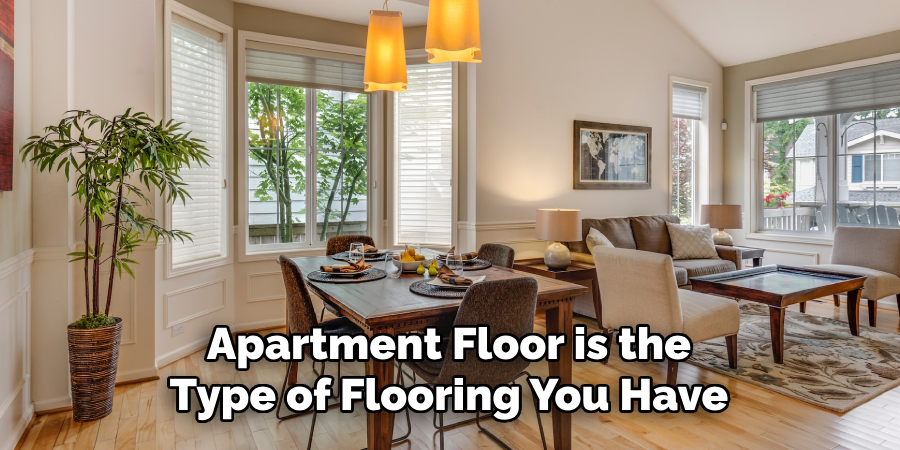
1. The first thing you should consider before soundproofing your apartment floor is the type of flooring you have. Different types of flooring require different methods of soundproofing, so it’s important to know what material your floors are made of.
2. If you have hardwood or tile floors, one effective method of soundproofing is to add area rugs or carpets. These soft materials can help absorb and dampen sound, making your apartment quieter.
3. Another option for soundproofing hardwood or tile floors is to install underlayment padding before laying down the flooring. This will create a barrier between your floor and the subfloor, helping to reduce noise transfer.
4. If you have carpeted floors, consider upgrading to thicker padding underneath the carpet. The thicker the padding, the more sound it will absorb.
5. For noise coming from below your apartment, you can try adding soundproofing materials to the ceiling of the floor below you. This could include acoustic panels or sound-absorbing insulation.
6. It’s also important to seal any gaps or cracks in your floorboards to prevent noise from traveling through them. You can use caulk or weatherstripping to seal these areas.
7. If you live in an apartment building, consider talking to your neighbors about any excessive noise they may be making and come up with a solution together. Sometimes simple things like adding rugs or rearranging furniture can make a big difference in reducing noise.
8. Another factor to consider is the layout of your apartment. If possible, try to place the rooms that require more quiet, such as bedrooms or study areas, away from common areas and shared walls.
9. Furniture placement can also play a role in soundproofing your apartment floor. Placing bookshelves or large pieces of furniture against shared walls can help absorb and block out noise.
10. Lastly, consider investing in sound-absorbing curtains or window treatments for any windows that face noisy streets or neighbors. These can help reduce outside noise from entering your apartment.
Following these considerations can help make your apartment floor quieter and more comfortable for you to live in. Remember, every situation is different, so it’s important to assess your specific needs and try out different methods until you find the best solution for soundproofing your space. And don’t forget to keep communication open with your neighbors to ensure a peaceful living environment for everyone. So, take the necessary steps and enjoy a quieter and more peaceful apartment living experience. Happy soundproofing!
Maintaining Tips for Soundproofing Apartment Floor
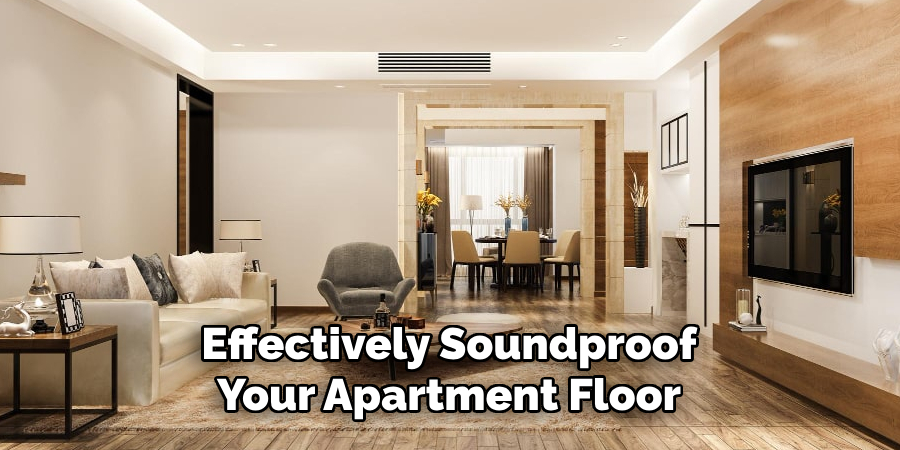
1. To effectively soundproof your apartment floor, it is important to use good-quality soundproofing materials. This will ensure that the sound insulation is effective and durable.
2. Consider adding a layer of mass-loaded vinyl underlayment or acoustic floor mats before installing your flooring. This will help to absorb impact noise and reduce airborne noise.
3. Seal any gaps or cracks in the floor using acoustic caulk, which is specifically designed for soundproofing purposes. This will prevent sound from traveling through these small openings into other rooms.
4. If your apartment has hardwood floors, consider adding a layer of carpet or rugs to help absorb sound and reduce impact noise.
5. Installing acoustic panels on the walls can also help to improve soundproofing in your apartment. These panels are designed to absorb sound waves and reduce echo.
6. Use heavy curtains or acoustic drapes on windows facing busy streets or noisy neighbors. These will not only block out sound but also add an extra layer of insulation.
7. Place furniture strategically to help absorb sound. For example, bookshelves or heavy couches can act as a barrier to noise.
8. Avoid hard flooring materials such as tile or hardwood, as these can reflect sound and make it louder. Consider using carpet or cork flooring instead.
9. Regularly check and maintain any soundproofing materials to ensure they are still in good condition. Over time, these materials may wear out or become less effective.
10. Lastly, communicate with your neighbors about noise levels and be considerate of others. This can go a long way in maintaining a quiet and peaceful living environment for everyone.
Following these maintenance tips can help ensure that your apartment floor remains soundproofed and provides a peaceful living space for you. Additionally, regularly checking and maintaining the soundproofing materials will save you time and money in the long run by preventing any potential issues or damages.
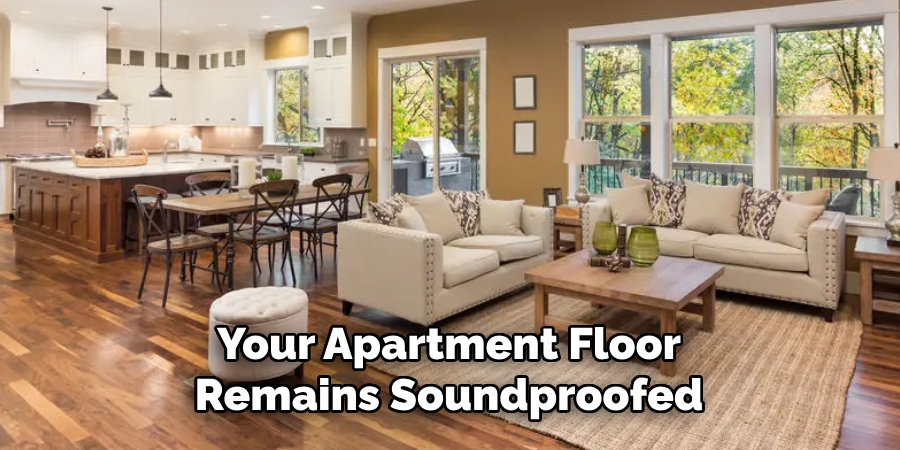
Remember to also be considerate of your neighbors and communicate with them about noise levels to maintain a harmonious living environment for all. By implementing these tips, you can enjoy a quieter and more comfortable living experience in your apartment. So, make sure to keep these tips in mind when soundproofing your apartment floor. Happy soundproofing!
Frequently Asked Questions: How to Soundproof the Apartment Floor
What is Soundproofing?
Soundproofing is a method used to reduce or eliminate unwanted noise from entering or leaving a certain space. It involves adding materials or making structural changes to minimize sound vibrations and transmission through walls, floors, and ceilings.
Why Do I Need to Soundproof My Apartment Floor?
Living in an apartment means sharing walls and floors with neighbors, and this can lead to noise disturbances. Soundproofing your apartment floor not only helps you create a peaceful living space but also prevents you from causing disturbance to others.
How Do I Know if My Apartment Floor Needs Soundproofing?
If you regularly experience noise disturbances from neighbors or external sources, it may be time to consider soundproofing your apartment floor. You can also conduct a simple test by playing music or making loud noises in your apartment and checking if they can be heard from outside or neighboring units. If so, then soundproofing may be necessary.
What Are the Benefits of Soundproofing an Apartment Floor?
The main benefit of soundproofing an apartment floor is reducing noise disturbances and creating a quieter living space. This can lead to improved sleep, concentration, and overall quality of life. It also helps maintain good relationships with neighbors and prevents potential conflicts over noise.
Conclusion
With the above outlined you can easily understand how to soundproof apartment floor. It is important to note that soundproofing techniques may vary depending on the type of apartment and budget. Consulting with a professional or doing thorough research can help in determining the best method for soundproofing your specific apartment floor.
Remember, a peaceful and quiet living space is essential for a comfortable and stress-free life. Don’t wait until noise disturbances become unbearable, take action and soundproof your apartment floor today. So, go ahead and enjoy a peaceful and quiet living space without any unwanted noise disturbances! Happy soundproofing!
